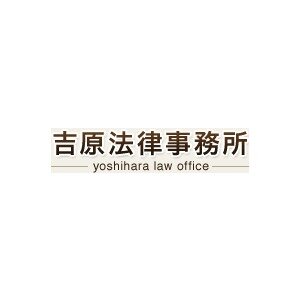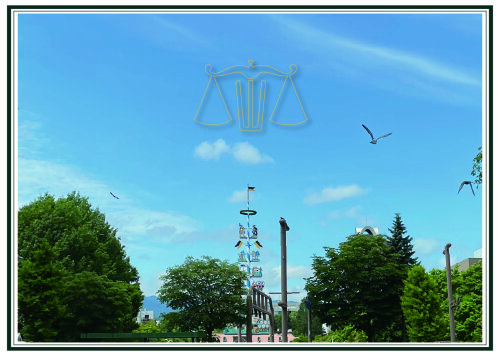Best Child Visitation Lawyers in Sapporo
Share your needs with us, get contacted by law firms.
Free. Takes 2 min.
Free Guide to Hiring a Family Lawyer
List of the best lawyers in Sapporo, Japan
About Child Visitation Law in Sapporo, Japan
In Japan, child visitation rights are often settled during the divorce proceedings, but can also become a separate legal issue if the need arises after the divorce has been finalized. Sapporo, being a significant city in Japan, follows the general principles of Japanese Family Law. After divorce, one parent is usually given custodial rights, and the other parent may be granted visitation rights to maintain a relationship with their child. However, Japan's family law system has been criticized for not enforcing visitation agreements as strictly as other countries, which often leads to difficulties in non-custodial parents seeing their children.
Why You May Need a Lawyer
Legal assistance is often sought in cases where one parent is denied visitation by the custodial parent, when the terms of visitation are not being respected, or when the non-custodial parent seeks to alter the visitation schedule. Additionally, international child custody disputes, such as when one parent relocates to or from Japan, can be particularly complex and require experienced legal navigation. A lawyer can provide assistance in negotiating visitation terms during divorce, representing a parent in court to establish or enforce visitation rights, or addressing changes in circumstances that affect child visitation.
Local Laws Overview
In Sapporo, as in the rest of Japan, custody and visitation issues are primarily governed by two laws: the Civil Code and the Family Registration Law. Japan’s Civil Code favors sole custody after divorce, and usually, the mother becomes the custodial parent. Visitation (menkai ken) is not as clearly defined in Japanese law as in other countries, which means visitation rights often come down to what is agreed upon by the parents. If an agreement can't be reached, family courts will intervene, but their decisions are not always consistently enforced. Cross-border cases may also involve the Hague Convention on the Civil Aspects of International Child Abduction, which Japan became a signatory to in 2014.
Frequently Asked Questions
1. What are my visitation rights as a non-custodial parent in Sapporo?
Visitation rights are not explicitly defined by law in Japan and are typically determined by mutual agreement or by court order if parents cannot agree. The extent of these rights can vary significantly.
2. How does the Japanese family court determine visitation schedules?
Family courts in Japan will consider the best interests of the child, the child's wishes (depending on their age and maturity), and the ability of each parent to care for the child when determining visitation schedules.
3. What if the custodial parent refuses to comply with the agreed visitation schedule?
If the custodial parent does not comply with the visitation agreement, the non-custodial parent can seek the family court's assistance, but it's important to understand that enforcement of such agreements can be challenging in the Japanese legal system.
4. Can a visitation agreement be modified?
Yes, if the circumstances of the parents or the needs of the child change, either parent can request the court to modify the visitation agreement.
5. How does Japan's joining of the Hague Convention affect child visitation?
With Japan joining the Hague Convention, there is now a legal framework to help address international child abduction cases, which can include navigating visitation rights across international borders.
6. Are there support services for international parents dealing with child visitation issues in Sapporo?
Yes, there are services and organizations that can assist international parents, often providing services in multiple languages.
7. What role do mediators play in child visitation cases in Sapporo?
Mediators may be involved in helping parents reach an agreement on visitation without going to court. The family court may also provide mediation services.
8. Is virtual visitation an option in Sapporo?
While not explicitly provided for in law, virtual visitation may be agreed upon between parents or ordered by the court in certain situations.
9. How is child preference considered in visitation agreements?
In Japan, the child's preference is considered by the courts if the child is deemed to be of sufficient age and maturity to express a reliable opinion.
10. Can grandparents seek visitation rights in Sapporo?
Grandparents can petition the family court for visitation rights, although these cases are quite rare in Japan, and there is no guarantee of success.
Additional Resources
For those seeking assistance with child visitation issues in Sapporo, the Sapporo Family Court (Sapporo Shi Kazoku Saiban-sho) is the primary governmental body handling such matters. Moreover, local bar associations can provide referrals to family law attorneys specializing in visitation rights. Various NGOs and international organizations operating in Japan can offer support and advice, particularly in cases involving foreign nationals.
Next Steps
If you need legal assistance with child visitation in Sapporo, the first step is to consult with a family law attorney familiar with local and international regulations who can provide guidance specific to your case. It may be beneficial to discuss your situation with a lawyer before taking any legal action to understand your rights and options fully. Additionally, consider contacting local support services and international organizations for non-legal assistance that may be available to you and your family.
Lawzana helps you find the best lawyers and law firms in Sapporo through a curated and pre-screened list of qualified legal professionals. Our platform offers rankings and detailed profiles of attorneys and law firms, allowing you to compare based on practice areas, including Child Visitation, experience, and client feedback.
Each profile includes a description of the firm's areas of practice, client reviews, team members and partners, year of establishment, spoken languages, office locations, contact information, social media presence, and any published articles or resources. Most firms on our platform speak English and are experienced in both local and international legal matters.
Get a quote from top-rated law firms in Sapporo, Japan — quickly, securely, and without unnecessary hassle.
Disclaimer:
The information provided on this page is for general informational purposes only and does not constitute legal advice. While we strive to ensure the accuracy and relevance of the content, legal information may change over time, and interpretations of the law can vary. You should always consult with a qualified legal professional for advice specific to your situation.
We disclaim all liability for actions taken or not taken based on the content of this page. If you believe any information is incorrect or outdated, please contact us, and we will review and update it where appropriate.











